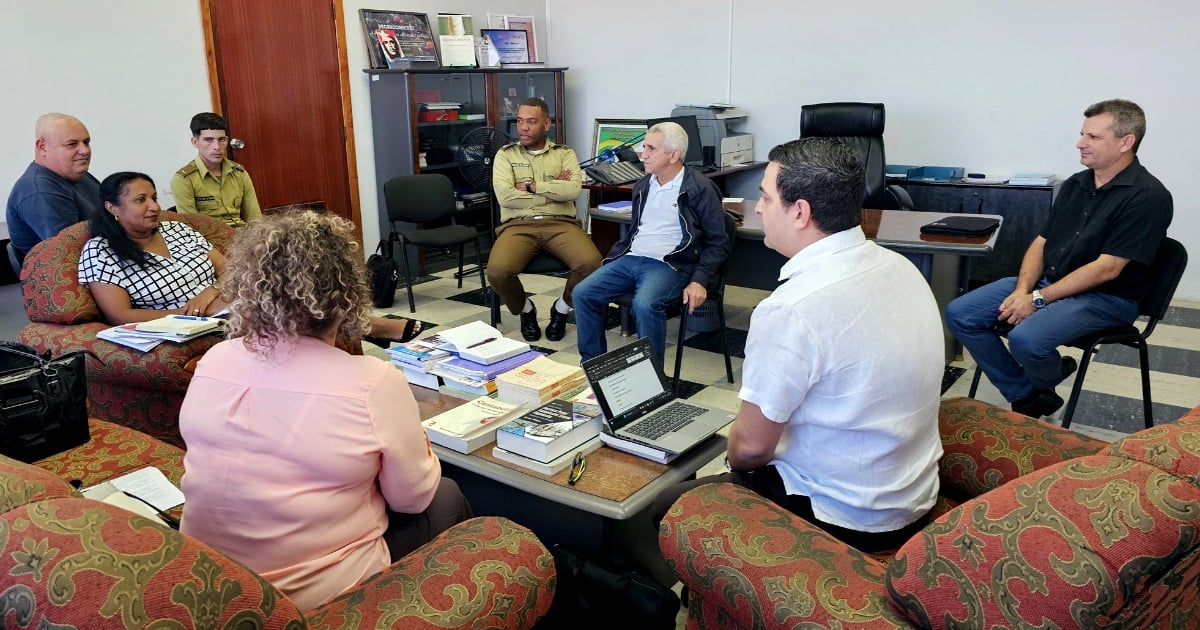The Cuban regime, through its spokesperson Humberto López, has hinted at its latest approach to rationalize the collapse of the national electrical system. In a recent Facebook post, López announced an upcoming episode of the program "Hacemos Cuba," which will focus on the "crimes associated with the national electro-energy system" and their impact on efforts to restore the country's electrical stability.
López claims these crimes "severely affect the programs aimed at fully revitalizing the nation's electrical grid." The discussion will feature guests such as Alfredo López Valdés, the national director of the Unión Eléctrica (UNE); Lourdes Pedroso Parés, the chief provincial prosecutor of Mayabeque; and Captain Roberto Batista Fernández, the lead investigator from the Ministry of the Interior's General Directorate of Criminal Investigation.
Shifting Blame for the Energy Crisis
This official narrative seeks to hold external actors and specific offenses accountable for Cuba's energy crisis, diverting attention from the government's inefficiency and lack of investment in the electrical system. In previous broadcasts, the presenter and intelligence mouthpiece has used his television platform to portray the totalitarian regime as a victim of U.S. destabilization strategies, violent attacks, and sabotage, thereby justifying the dictatorship's repressive actions.
In his last two appearances, López has used his program to threaten those released from prison by the regime (allegedly under a Jubilee Year agreement, according to official reports, or through negotiations with the Biden administration, according to unofficial sources) with a return to incarceration if they violate the "conditions" of their parole.
López's History of Media Manipulation
López's track record of media manipulation and direct attacks on activists and civil society members is well-documented. His notorious role on state television, where he has hosted prime-time programs dedicated to defaming and discrediting regime opponents, has resulted in widespread disdain for the communicator.
In March 2021, he issued direct threats against activists from the 27N movement and civil society in general, invoking Article 4 of the Constitution, which declares "the defense of the socialist homeland" to be "the greatest honor and supreme duty of every Cuban."
Additionally, he has been accused of exposing activists' private information on national television, violating their privacy and jeopardizing their safety. A notable instance is the case of artist Tania Bruguera, who, in May 2021, responded to López's defamations by filing a slander lawsuit against him.
Efforts to Silence Dissent
Protests in Nuevitas, the July 11, 2021 demonstrations (11J), the impact of the song "Patria y Vida" on society, and the actions of the San Isidro Movement (MSI) or the Patriotic Union of Cuba (UNPACU), along with Cuban discourse on social media and other expressions of dissent, protest, and activism have been the targets of defamatory and accusatory campaigns by the regime's media lackey.
These actions are part of a broader strategy of intimidation and social control, where media manipulation and direct threats aim to silence any form of dissent. López has been a pivotal figure in this repressive machinery, using his platform to instill fear and enforce censorship.
The use of figures like Humberto López to justify the shortcomings of the electrical system and other structural issues in the country highlights the regime's unwillingness to take responsibility for Cuba's ongoing crisis. Instead of addressing the root causes of these problems, the government chooses to blame others and suppress any critical voice that might challenge the official narrative.
Understanding Cuba's Energy Crisis
What is the main cause of Cuba's energy crisis?
The primary cause of Cuba's energy crisis is the government's inefficiency and lack of investment in the national electrical system, compounded by external factors such as U.S. sanctions.
How does the Cuban government justify the power crisis?
The Cuban government, through spokespersons like Humberto López, attributes the power crisis to external actors and criminal activities, deflecting blame from its own shortcomings.
Who is Humberto López?
Humberto López is a Cuban regime spokesperson known for his role in state media, where he defends government actions and attacks critics and activists.
